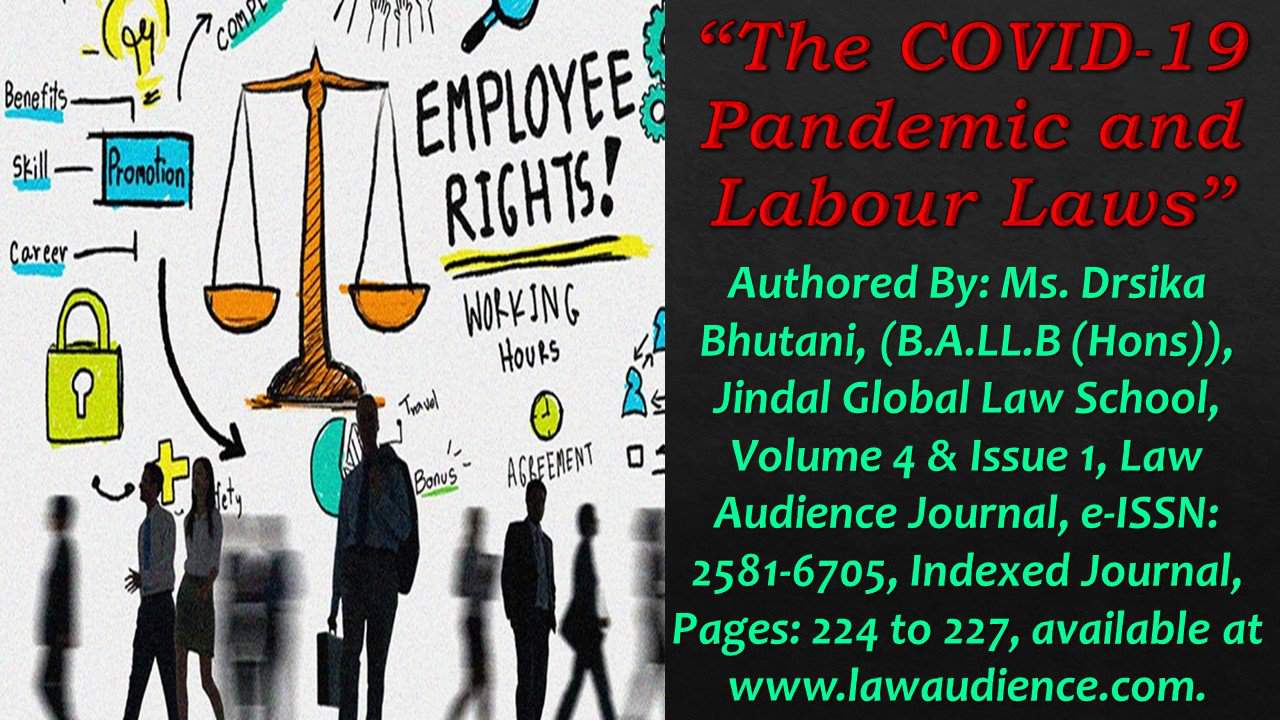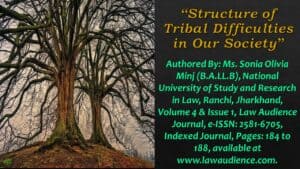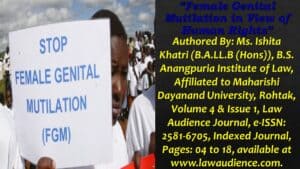Click here to download the full paper (PDF)
Authored By: Ms. Drsika Bhutani, (B.A.LL.B (Hons)), Jindal Global Law School,
Click here for Copyright Policy.
THE COVID-19 PANDEMIC AND LABOUR LAWS:
The COVID-19 Pandemic brought about an unprecedented global health scare and along with it came a massive economic impact that pushed a lot of nations into an economic recession, a state which required radical changes to the economic policies; changes that left an exorbitant amount of people either jobless or facing possible dismissal. With the aim of boosting the economy during the lockdown stage of the pandemic, several Indian states, including but not limited to, Madhya Pradesh, Uttar Pradesh, and Gujarat, came out with ordinances and notifications that exempted them from complying with certain labour laws[1].
The State of Uttar Pradesh put out an ordinance called the “Uttar Pradesh Temporary Exemption from Certain Labour Laws Ordinance, 2020”. The ordinance ended up suspending 35 of the 38 labour laws in the state for a span of three years. The laws that continued to apply in the state were the specific provisions relating to safety and health under the Factories Act, 1948[2], the Building and Other Construction Workers (Regulation of Employment and Conditions of Service) Act, 1996[3]; wage payment cut-off date under the Payment of Wages Act, 1936[4]; the Bonded Labour System (Abolition) Act 1976[5]; the Employees’ Compensation Act, 1923[6]; and provisions relating to women and children in all existing labour laws. The state further increased the daily working hours from 8 to 11, without touching upon the topic of doubled overtime wages. While the reasoning for these exemptions was to fasten the slow-paced economy due to the pandemic, it deprived the labourers of what little legal protection they received from the state, to begin with.
Though there is no denying that Section 5 of the Factories Act[7] gives the state government the power to exempt during a public emergency, it would however be a mockery of the essence of our constitution to term the COVID 19 pandemic as one, for what is termed to be a public emergency are circumstances that endanger the security of India gravely, such as internal disturbance, external aggression, war, etc. Article 21 of the Indian Constitution[8] talks about the right to life, not only does this cover the physical aspect of life but also other intricacies such as the right to work and livelihood. The suspension of laws such as the Industrial Disputes Act, 1947[9], enables the employers to hire and fire the workers on their own whims and fancies. Time and again, the workers have fought for the basic necessities such as the availability of electricity, water, basic health, and safety regulation, though not fully available to them now either, the suspension of the Factories Act, 1948[10], ruins what little they received from their struggle for humane working conditions. Wages have always been an issue, much before the pandemic itself.
However, with the further suspension of the Minimum Wages Act, 1948[11], the uncertainty surrounding overtime wages and the pandemic leading people to joblessness, etc, pushes the labourers to the very edge. It is imperative to understand that even though the Bonded Labour System (Abolition) Act, 1976[12] remains effective, the suspension of minimum wages act will act as an opportunity for the employers to underpay the workers and thus making it a situation of Bonded Labour, as was stated in the case of Bandhua Mukti Morcha vs. Union of India[13]. Based on the aforementioned, it can be stated that the suspension of the laws stands to be violative of Article 21 of the Constitution. Adding on to this, as Equal Remuneration Act, 1976 stands suspended, it will allow the employers to pay the women less than the men for the same amount of work and therefore being violative of Article 14[14] of the Constitution that ensures the right to equality and of Article 39(d)[15] that talks about wage depending upon the work done and not on the sex of the worker. Further, if the workers were to form unions and trade unions, the employer could simply terminate them as the Trade Unions Act, 1926[16] stands suspended and this would further be a violation of Article 19(1)(c)[17] that talks about the right to freedom and expression of the citizens. It is of further importance that we know that the Labour Laws are in the Concurrent List in the Seventh Schedule. Article 254(1)[18] talks about primacy to be given to Centre made and/ or Parliament upheld laws, however, as per Article 254(2)[19], an exception can be made for the States to enact their own laws, however, this is only the case if President’s assent is received, as per Article 213[20], for the same.
It was stated in the case of Chhotabhai Jethabhai Patel and Co. vs. State of Madhya Pradesh and Ors.[21] that a legislation would deem to be valid only if it does not conflict with legislation of the parliament or with the law that has been defined in the constitution. However, in the present scenario, the assent of the President is missing and thus, it goes against the parliament upheld law. This, therefore, suggests that the ordinance is not valid for the proper procedure has not been followed for the assent of the President is missing.
In the case of Narayanaswamy and Others, Etc. vs. State of Karnataka And Another[22], it was stated that any person, albeit citizen or non-citizen have their sets of guaranteed rights under Part III of the Constitution, it further states that in case an ordinance offends any of the fundamental rights, it would be deemed to be liable to be struck down. Lastly, India is a signatory to 6 International Labour Law Organization conventions, those that are to act as guiding principles for Labour Laws by providing justice through various sources and methods to the labourers. The aforementioned suspension of the labour laws not only proves to be unconstitutional as it is violative of the fundamental rights of the workers but also against the ILO conventions.
India is a welfare state that prioritizes the welfare and interests of the workers are to be ensured at all costs, at all times. From the aforementioned scenario arising due to the notifications and ordinances, it can be seen that the aimed potential economic boost and growth are being tried to achieved at the cost of the same interest and welfare of the workers that are in theory to be prioritized.
There is no denying that the impact of the Pandemic has been catastrophic in all regards and that it has had a severe impact on the economy of the country, however, one needs to understand that it is the workers bearing the massive brunt of the economic disaster that has taken place and these ordinances and notification push them to the edge even further and strips them off of their legal protection, enabling the government to exploit the already vulnerable people and section of the country. It would be in the best interest of the country and of the economy to bring forth reformatory steps that benefit the industries and the labourers.
Cite this article as:
Ms. Drsika Bhutani, “The COVID-19 Pandemic and Labour Laws”, Vol.4 & Issue 1, Law Audience Journal (e-ISSN: 2581-6705), Pages 224 to 227 (6th July 2022), available at https://www.lawaudience.com/the-covid-19-pandemic-and-labour-laws/.
Footnotes & References:
[1] Shrusti Jenamaharathy, State Wise Relaxations in Labour Legislation Amidst COVID 19, available at https://ksandk.com/labour/labour-legislation-amidst-covid-19/.
[2] Factories Act, 1948, Acts of Parliament, 1948.
[3] Building and Other Construction Workers (Regulation of Employment and Conditions of Service) Act, 1996, Acts of Parliament, 1996.
[4] Payment of Wages Act, 1936, Acts of Parliament, 1936.
[5] Bonded Labour System (Abolition) Act 1976, Acts of Parliament, 1976.
[6] Employees’ Compensation Act, 1923, Acts of Parliament, 1923.
[7] Factories Act, 1948, § 5, Acts of Parliament, 1948.
[8] INDIA CONST. art 21.
[9] Industrial Disputes Act, 1947, Acts of Parliament, 1947.
[10] Factories Act, 1948, Acts of Parliament, 1948.
[11] Minimum Wages Act, 1948, Acts of Parliament, 1948.
[12] Bonded Labour System (Abolition) Act 1976, Acts of Parliament, 1976.
[13] Bandhua Mukti Morcha v. Union of India 1984 AIR 802.
[14] INDIA CONST. art 14.
[15] INDIA CONST. art 39 cl. d.
[16] Trade Unions Act, 1926, Acts of Parliament, 1926.
[17] INDIA CONST. art 19 cl. 1 s.cl. c.
[18] INDIA CONST. art 254 cl. 1.
[19] INDIA CONST. art 254 cl. 2.
[20] INDIA CONST. art 213.
[21] Chhotabhai Jethabhai Patel and Co. v. State of Madhya Pradesh and Ors. AIR (1966) MP 34.
[22]Narayanaswamy and Others, Etc. v. State of Karnataka And Another AIR (1992) Kant 28.




